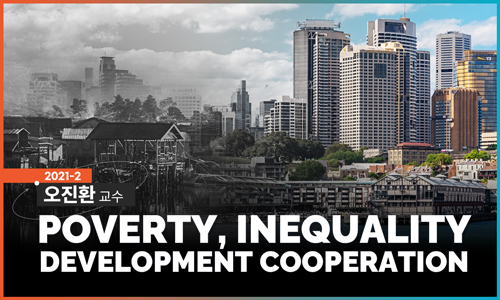Course contents/objectives
Although the global community has successfully achieved the first goal of the Millennium Development Goals (MDGs), halving extreme poverty by pulling people out of poverty traps, there are still many people living under the poverty line. In line with this, distribution, or income inequality between people, regions, and countries are becoming wider and wider. When we consider the widening gap between countries, we need to pay attention to the last goal of the MDGs, Partnership, which should be a rationale of the development cooperation. Over the course, students will
- answer some questions, like, what do we mean by poverty line and poverty trap? How to measure poverty and inequality? What are the challenges and opportunities of development cooperation? What is the stance of South Korea as an emerging donor of ODA? What are the challenges and opportunities of development cooperation? What is the stance of South Korea as an emerging donor of the official development assistance?
- look into theories, empirical data, and read academic journals and books (all written in English) to answer those questions.
- obtain tips for pursuing careers in this field, including international organizations








